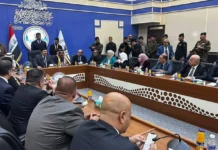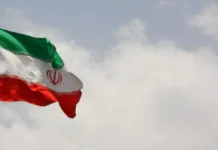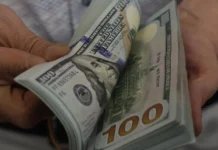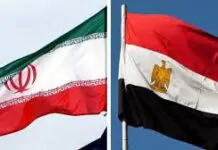Tishwash: this is about old dollar notes … or is it?
Iraq’s market turns away from “old US Dollar”
Deeply entrenched since the 2003 US invasion, the dollar has become a cornerstone of Iraq’s economy, fueling oil exports, trade, and daily transactions, effectively operating as a parallel currency. However, older banknotes, especially pre-2003 issues, face growing rejection from traders and exchange offices.
Dollar in Iraqi Economy
The US dollar holds a significant position in Iraq’s economy, functioning almost as a secondary currency. This prominence is rooted in the economic restructuring that followed the 2003 US invasion, during which the United States assisted in establishing the Central Bank of Iraq. Consequently, the dollar became deeply integrated into Iraq’s financial system, especially given the country’s substantial informal economy that relies heavily on cash transactions.
Iraq’s oil industry, accounting for nearly 99% of the country’s exports, operates primarily in US dollars. This reliance reinforces the dollar’s dominance while closely linking Iraq’s economic stability to fluctuations in the US currency.
In Iraq, the old-design $100 US banknote, particularly those printed in 2003 or earlier, is commonly referred to as “Al-Ammani.” The term dates back to the 1990s when this denomination was widely circulated in Amman, Jordan. Due to strong trade ties between Iraq and Jordan at the time, the nickname made its way into Iraq.
Turns Away from Old Dollar Bills
Over time, new versions of the $100 bill with enhanced security features were introduced, making older editions less common in circulation.
Ahmed Sadiq, owner of Al-Aws exchange office, told Shafaq News that “some currency exchange offices refuse to buy old-design US dollar banknotes from customers,” noting that others accept them but at a rate 2,000 to 3,000 dinars lower than the market price.
He added that some exchange offices stamp certain dollar banknotes with a special office seal to avoid disputes, “because some customers have returned dollar bills to exchange offices, claiming they were counterfeit and alleging they had purchased them from those offices.”
“Marking foreign currency with a seal could create difficulties for buyers when trying to exchange them abroad,” he acknowledged.
For his part, Jowad Malik, owner of Al-Fas exchange office, told Shafaq News that “the reluctance to deal with old-design US dollars stems from counterfeiting cases in Turkiye and Jordan and rumors of such banknotes entering Iraq.” He noted that “many exchange office owners no longer accept them, considering them a thing of the past, or they buy them at a discount of up to 20,000 dinars or more—mainly those who can exchange them at the central bank.”
He also pointed out that many exchange offices refuse to handle $1 bills sometimes even $5 bills, despite neighboring countries accepting, assuming that this is largely influenced by major traders who dominate dollar transactions.
In addition, Iraqi trader Haider Al-Hassani told Shafaq News that he completely avoids dealing with old US dollar banknotes “to prevent counterfeiting risks,” as “older notes lack clear security features.”
Al-Hassani added that he also refrains from trading even in new US dollar bills, stating that “economic security regulations prohibit their exchange at market rates.”
Official Stance and Banking Regulations
Director General of Accounting at the Central Bank, Ihsan Shammran, stated to Shafaq News that “all US dollar banknotes issued by the Federal Reserve remain in circulation, and there are no directives from the bank suggesting otherwise, provided the notes are authentic and not counterfeit.”
He added that “the Central Bank of Iraq (CBI) and commercial banks continue to accept all denominations and past series of US dollar banknotes as long as they are genuine.”
Regarding the legitimacy of refusing the banknotes, the financial expert and former CBI Director General, Mahmoud Dagher, explained to Shafaq News that “no matter what happens, neither the public, traders, nor exchange office owners can be forced to accept old-design US dollars,” calling the practice a matter of personal discretion. link
************
Tishwash: Iraq, Czech strengthen ties with key agreements
On Thursday, Iraqi Prime Minister Mohammed Shia al-Sudani met with Czech Prime Minister Petr Fiala in Prague.
Al-Sudani’s media office stated that both sides signed an agreement and five memorandums of understanding across various sectors.
“The ceremony included the signing of an air transport agreement between the Iraqi and Czech civil aviation authorities, as well as a memorandum of understanding between the Iraqi Ministry of Oil and the Czech Ministry of Industry and Trade.”
The media office added that “a draft memorandum of understanding was signed between the Ministries of Interior of Iraq and the Czech Republic, along with a cooperation memorandum between the Iraqi and Czech Federations of Industries, another between the Iraqi and Czech Chambers of Commerce, and a letter of intent with the Iraqi Ministry of Environment.” link
Tishwash: Valentine’s Day gifts, led by the Tahoe, revive local markets in Iraq
Valentine’s Day gift shops witnessed a state of peak and alert during the past two days, as the demand for buying gifts that reflect feelings of love and affection between spouses and lovers increased.
Ibrahim Ali, owner of a gift shop, told Baghdad Today, “Valentine’s Day begins on February 14, and this occasion has begun to witness an increasing presence in Iraqi society, especially in recent years.”
He explained that “there is a real demand for buying gifts by couples, but what is interesting is that the subject is not limited to the youth or newlyweds, but even the elderly, which reflects a message of affection and mercy between spouses and the continuation of the marital relationship. It is an expression of gratitude, communication and harmony, and is a beautiful moment.”
Ali added, “Today is the peak day for us, and there is a great demand for buying Valentine’s Day gifts, but the level of demand varies from year to year. In some years, demand was very high, and in other years it was low, and this is affected by economic and security factors that put pressure on the level of purchasing.”
For his part, Wasfi Karim, who is also a gift seller, pointed out that “the purchasing rate in the past few days was somewhat good, but less than last year, and we hope that today will witness a greater turnout, especially since the weather and general atmosphere encourage celebrating Valentine’s Day, although the economic situation still affects the rates of celebration.”
Karim explained that “a large portion of his customers are shy, so when someone buys a gift for Valentine’s Day, they put it in a dark bag, trying to hide their celebration of this occasion. This reflects an individual privacy that cannot be generalized.”
In a related context, Wajdi Al-Azzawi, owner of a gift and materials sales agency, said, “Valentine’s Day gifts are prepared early, up to a month or two, and are distributed to a large number of shops in Baqubah and the cities of Diyala, and even in the countryside there is a demand for them.”
He told Baghdad Today, “This phenomenon reflects the community’s interaction with the occasion, even though we are in a conservative environment, and there are calls to reduce the celebration of Valentine’s Day, but it seems that the language of love between spouses, even if it is not announced, is increasingly interacting.”
Al-Azzawi added, “Society interacts with this occasion in varying degrees. In some years, there are big celebrations, while in other years, the celebration is modest. Therefore, there are many factors that affect the celebration of Valentine’s Day.”
In turn, economic expert Nabil Al-Marsoumi stated that “there is an increase in demand for Tahoe cars on Valentine’s Day.”
Al-Marsoumi pointed out on his Facebook account, which was followed by Baghdad Today, that “Valentine’s Day is one of the most prominent commercial seasons in the world, as it witnesses a significant increase in spending rates on gifts and celebrations, which enhances the movement of markets and supports many economic sectors, from trade to hospitality and tourism. The travel sector also witnesses a noticeable recovery during this occasion, which prompts airlines and hotels to launch special offers to enhance tourism.”
Al-Marsoumi added, “Valentine’s Day has some positive effects on various economies, as estimates from the Ornamental Plants and Products Exporters Association indicate that Turkey exported about 75 million roses to Europe, worth up to $10 million. These roses were exported to 30 countries, most notably the Netherlands, Britain, Germany and Romania, driven by Valentine’s Day events this year.
In the United States, consumer spending on this occasion rises to more than $20 billion, which leads to accelerating the growth rate of the gross domestic product there,” noting that “the impact will be limited in developing countries, including Iraq, as the increase in consumer spending will lead to an increase in imports without leaving a positive impact on the economy.”
The economic expert added, “Iraqis spend a lot of money on travel on Valentine’s Day, especially since Iraq’s average annual spending on tourism, according to World Bank estimates, is $7.5 billion,” adding, “This is due to the poor distribution of income in Iraq, which is represented by a small segment of the population controlling the largest part of the national income. There are 36 billionaires in Iraq, each of whom owns more than a billion dollars, and according to a French study, there are 16 thousand millionaires, each of whom owns between one million and one billion dollars.”
He added, “Because of this, Valentine’s Day this year witnessed a great demand from these rich people for Tahoe cars as gifts presented on this occasion, noting that the price of the Tahoe is about 100 million dinars, which is equivalent to the monthly salaries of about 150 employees.”
Valentine’s Day, or as it is known, Love’s Day, is one of the social occasions celebrated by the world and Iraqis in February of each year, where people compete to buy gifts and present them to their partners, as gifts and their shops are colored red, expressing the color of the heart, in a step that expresses sharing love. link





